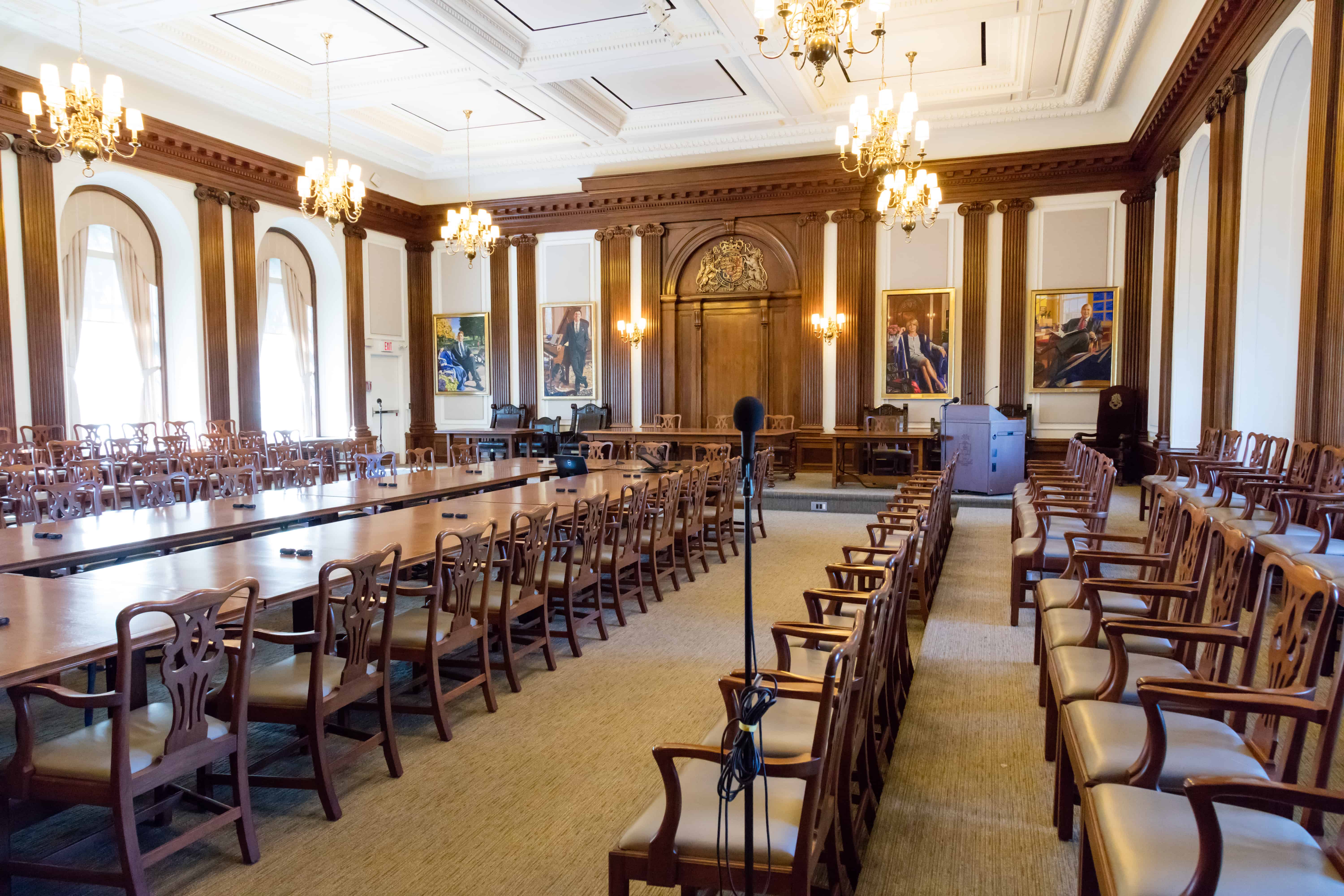After nearly a month of campaigning, the results for the recent Governing Council election were released on February 21.
The Governing Council is the highest decision-making body at U of T. It is made up of 50 members, of which eight are students.
Victoria College student Robert Xu and Trinity College student Amanda Harvey-Sánchez were elected for the Constituency I seats, which represent full-time undergraduate students in the Faculty of Arts and Science, UTM, and UTSC.
Xu won a total of 1,057 votes, well ahead of Harvey-Sánchez’s 636. He ran on a platform of ten unique campaign promises, which included the pledges that school should never start on a Thursday and that Robarts should have beds.
One of his largest goals is to reform the University of Toronto Students’ Union (UTSU), which he believes is dysfunctional and racist. In his campaign statement, he wrote, “The Student Union is incompetent, [sic] cut cost, decrease size, fix election procedure.”
“UTSU has been a pretty bad student union with a lot of scandals, … [and] has wasted way too much of our money,” Xu told The Varsity. “Last year, they disqualify [sic] an elected Chinese student simply because she used Chinese to campaign during the UTSU election. The international student population, at least I can say for the Chinese ones, are extremely unsatisfied with the way our student government is.”
Xu’s statement is in reference to the 1UofT slate’s disqualification after posting non-English campaign material without approval from the Chief Returning Officer. Since the UTSU is a federally incorporated non-profit that is independent of the university, it is unlikely that Governing Council will have a significant impact on how the union is run.
The Varsity has reached out to UTSU President Jasmine Wong Denike and has not received comment.
Xu has also expressed interest in improving the Health and Wellness Centre, writing in his candidate statement that “Students should not be treated like numbers.”
Harvey-Sánchez’s campaign focused on environmental sustainability and affordable education.
“In my role on Governing Council I will push UofT to divest its endowment from fossil fuel companies,” she said in regards to her campaign promises. “If UofT wants to be a leader in reconciliation with Indigenous peoples, we must divest from companies that violate their right to free, prior, and informed consent regarding fossil fuel projects.”
“According to Statistics Canada, the average cost of domestic university tuition in Ontario is $8,114, which is higher than the cost of tuition in any other province. I will also use my role to actively lobby provincial and federal politicians to provide more funding to schools like UofT so that our tuition doesn’t have to rise each year.”
The seats for Constituency II, which represent full-time students in the professional faculties, were won by law student Aidan Fishman, who has already served on the council for three terms, and Engineering Science student Twesh Upadhyaya. Fishman and Upadhyaya won a total of 270 and 269 votes, respectively.
In his candidate statement, Fishman said that the professional faculties need a “wise, experienced representative looking out for our interests.”
“The student experience in the Professional Faculties differs from Arts and Sciences primarily in the more focused and intensive nature of the programs, as well as the higher tuition accompanying them,” said Fishman. “In light of these circumstances, many ProFac students have asked that they be permitted to opt-out of ancillary fees for services such as Hart House and the Athletic Centre, and I intend to work with Simcoe Hall to see if and how this can be accomplished.”
Upadhyaya’s campaign promises focused on “a lower tuition cap, more consistent TAs, and investment in campus nap spaces,” according to his candidate statement.
“Some TAs prepare additional review materials and question handouts that are unavailable to all students. By requesting TAs to post all their materials on Portal, students in all sections would have access to the same resources,” explained Upadhyaya. “The goal is to improve consistency across the TAs in the same course for a given year.”
In regards to his pledge to implement nap spaces, Upadhyaya explained that he would use data to show U of T why this plan would benefit everyone.
“Various studies have been conducted that show well-rested students perform better than their counterparts,” said Upadhyaya. “Moreover, students, especially those who plan to commute, would be more enticed by the promise of nap spaces, which could increase the University’s admission rate. Finally, having dedicated sleeping spots would free up computer labs and library chairs, reducing facility expansion needs.”
The newly-elected students will begin their one-year terms in July.


